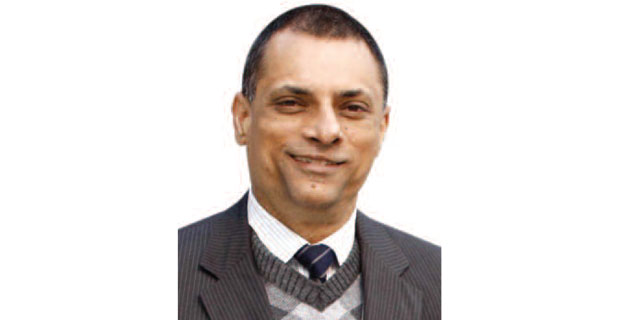Editor’s Desk
A people’s relationship to their heritage is the same as the relationship of a child to its mother
—John Henrik Clarke,
African-American Historian.
With each passing generation, the Indian Diaspora—especially the youth—finds itself unwittingly distanced from the civilizational heritage of its ancestral motherland. It involves losing more of the native language of its forebears, their food habits, their songs, and their way of life itself.
Chilean-American writer Isabel Allende, President Salvador Allende’s niece, once said, “roots are not in landscape or a country, or a people, they are inside you.” It is the umbilical pull of the roots that draws people to their motherland, as well as an undeniable quest of the past, a people’s relationship to their heritage, as Clarke, the African-American historian puts it.
In order to facilitate this pull, and bridge the growing distance with their civilizational heritage, the Government of India has run the Know India Program (KIP) for nearly two decades for the benefit of PIO (persons of Indian origin) youth. Initiated by the erstwhile Ministry of Overseas Indian Affairs during the first decade of the 21st century, the legacy has been carried forward by the Ministry of External Affairs since 2016. Batches of up to 40 young PIO youth in the 21-35 age group from across the world go through a rigorous selection process and make their way into India for what is for them essentially a knowledge tourism program.
During their three-week stay, they are provided full hospitality in India, and 90 percent of the cost of their return airfare is met by the MEA. We spoke to some of the members of the 75th batch of the KIP, as well as to the joint secretary in the MEA in charge, and some experts who’ve worked closely on such programs in earlier times. It comes as no surprise that when they land in India, the PIO youth is often struck with a sense of awe. Soon, as our report shows, the experience in the country turns into a life changing one.
We’ve put one of India’s most respected practitioners of holistic medicine on our cover. Dr R.K. Tuli, once a specialist in aerospace medicine, took early retirement from the Indian Air Force to pursue his interest in acupuncture at international institutions in China and Sri Lanka. He then trained in other areas of alternative medicine. He was subsequently invited by the founder of the Apollo Group of Hospitals to head what became India’s first department of holistic medicine. He has spent several decades treating thousands of patients including many of India’s who’s who and numerous high-profile international patients. He speaks to us about his journey, the lessons learnt, and the intimidation felt by some of his peers in Apollo (who were mainstream medical practitioners) at the success of holistic medicine.
We’ve featured the essential gains from Prime Minister Narendra Modi’s visit to Russia and to Austria—the first by an Indian PM in over four decades—with comments from experts. We also have a curtain raiser on the upcoming International Solar Festival in September 2024 that is being overseen by Dr Ajay Mathur, the dynamic Director General of the International Solar Alliance. There are many other stories in this issue from across the world that could easily spark your interest.
Sayantan Chakravarty
sayantanc@gmail.com











Comments.